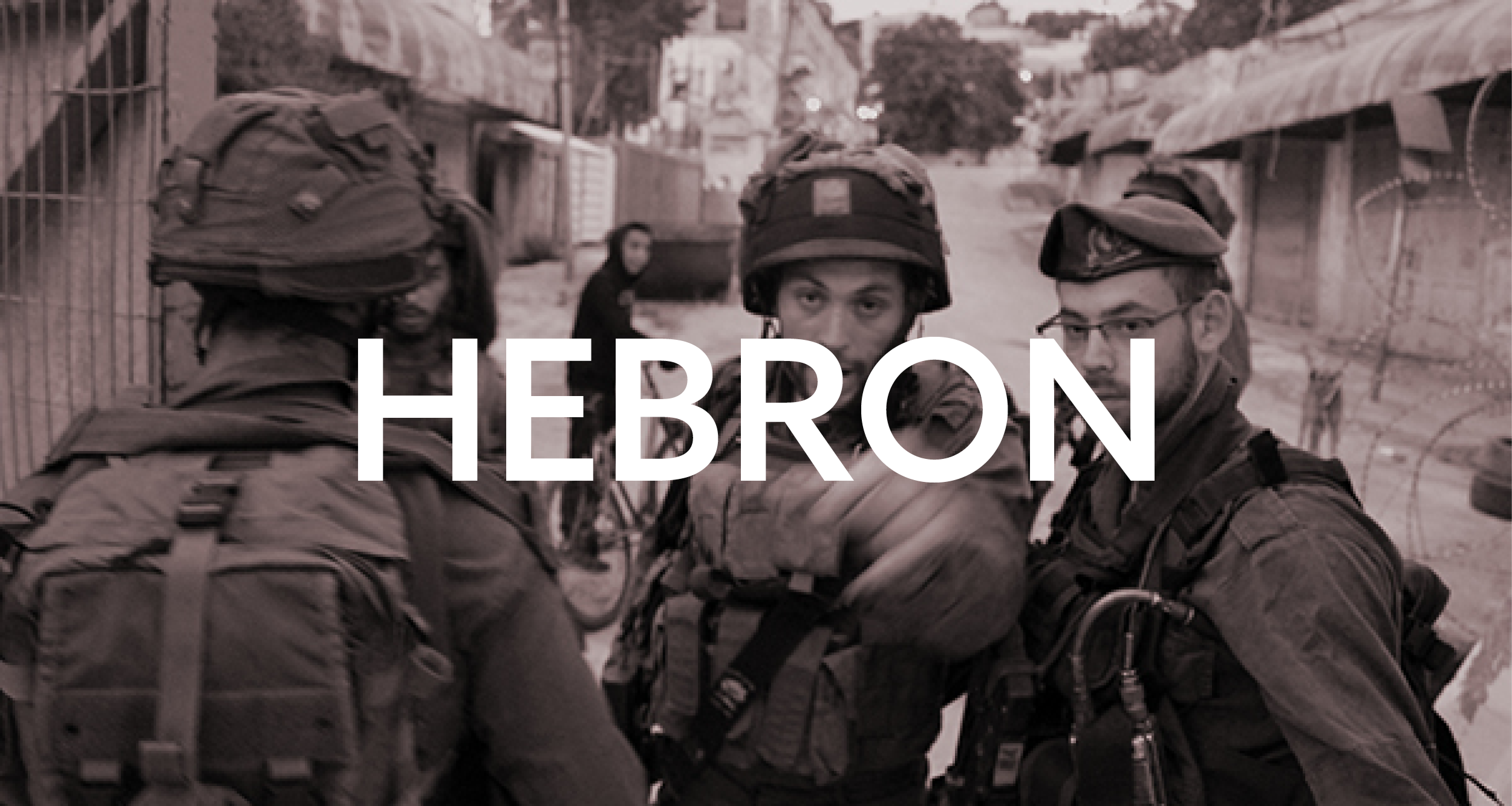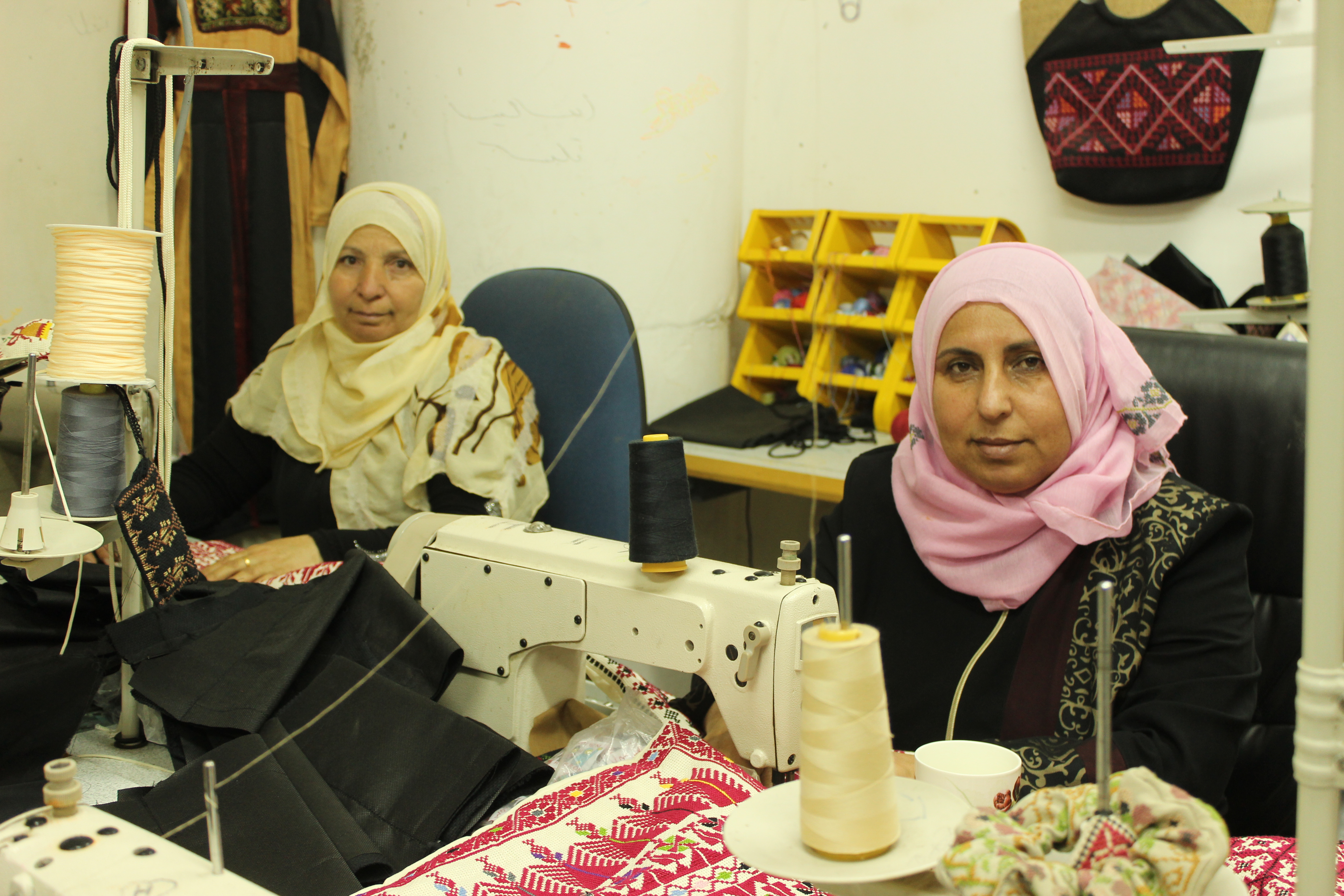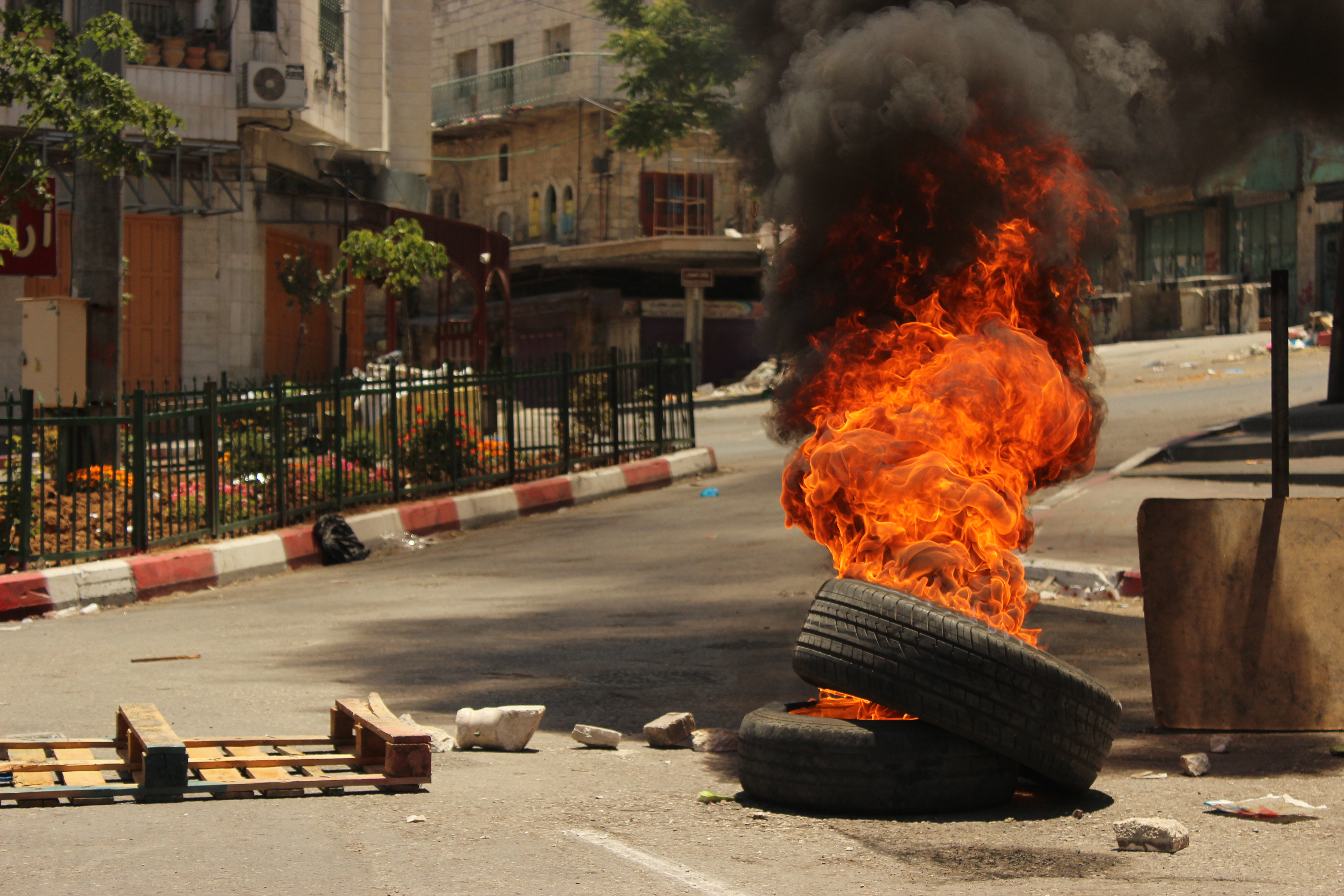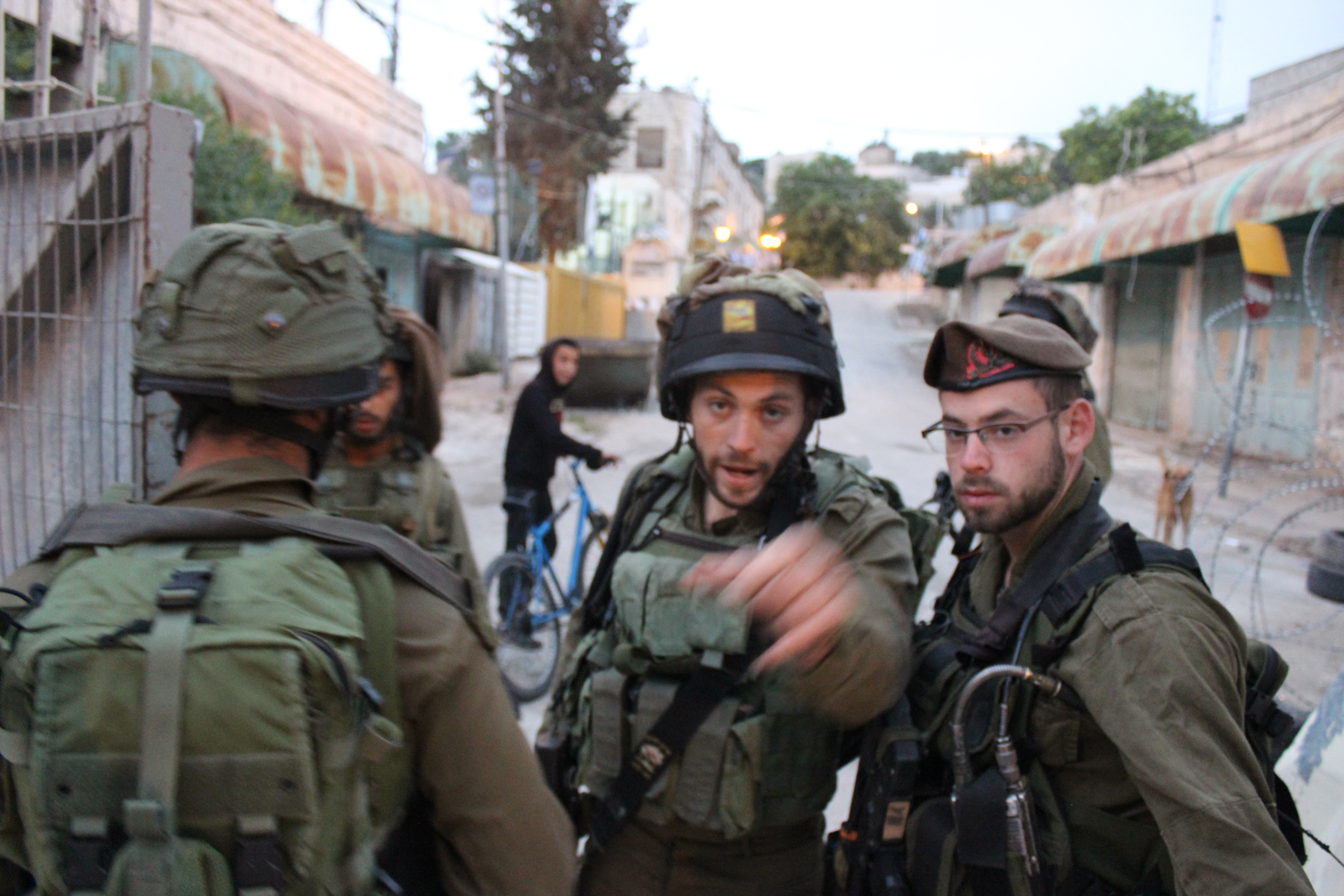Category: Hebron
-

Palestinian Activist Detained In Hebron
A 22 year old Palestinian activist was detained in al-Khalil this morning. He was held and interrogated for thirty minutes, before being escorted through the Shuhada Street checkpoint. He was released after another half hour with no charge, but was told that Israeli forces would raid his house if they found he was linked to the…
-

Resistance and empowerment in al-Khalil’s women’s cooperative
ISM met with the founder of al-Khalil’s largest women’s cooperative to discuss business, the occupation and women’s empowerment. Idhna is a small town to the west of al-Khalil, located less than a kilometre from the separation wall that divides Israelis from Palestinians. It is also home to the main workshop of Women in Hebron, a…
-

Two shot in Hebron as Israeli forces clash with protesters during general strike
Palestinian protesters clashed with Israeli soldiers and border police yesterday in Hebron, as Palestinians demonstrated in solidarity with the prisoners’ hunger strike. The clash lasted for five hours, with Israeli forces using tear gas, sound bombs, rubber-coated steel bullets, and live ammunition to disperse the protesters. A 15-year old and a 20-year old were shot,…
-
Soldiers detain 12-year old child in al-Khalil [VIDEO]
A 12-year old Palestinian boy was detained by Israeli armed forces this afternoon in Hebron’s Bab al-Baladiyya military base. The boy was apparently targeted by the soldiers, who were interrogating passers-by on his whereabouts. When he was identified, the heavily-armed soldiers quickly surrounded the boy and his father before forcing them into the military base.…
-
14-year old detained in al-Khalil as tensions run high
A 14-year old Palestinian boy was detained yesterday afternoon as Israeli forces conducted a search in Hebron’s Old City. The boy was riding his bike when four heavily armed soldiers began interrogating him. Shortly after, he was taken to Bab al-Baladiyya military base. Prior to the search, soldiers had stopped several men outside the base.…

![Soldiers detain 12-year old child in al-Khalil [VIDEO]](https://palsolidarity.org/wp-content/uploads/2017/05/patrol-in-hebron.jpg)
